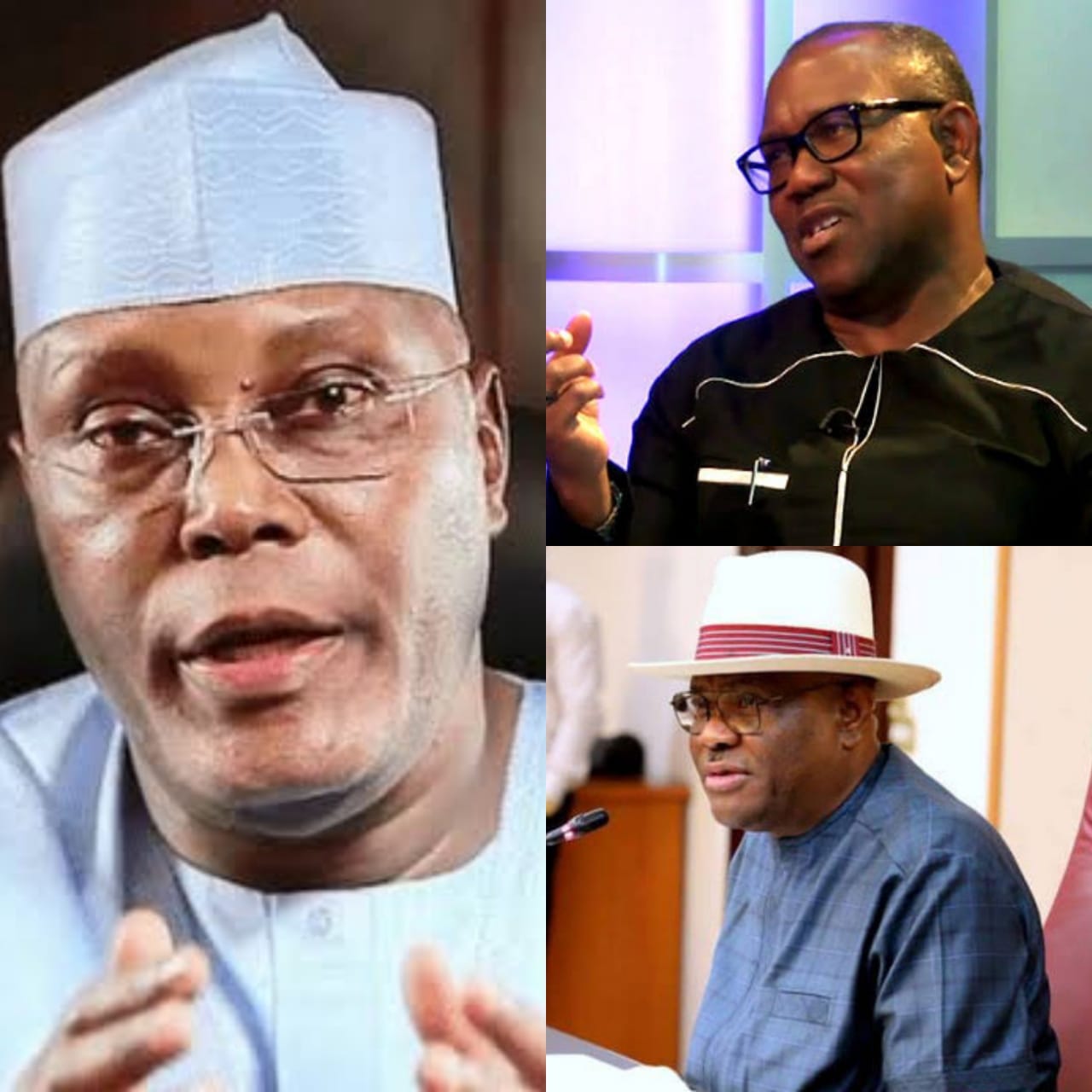Federal Government Assurance On Generation Of 25000MW Electricity—Understandably, the major factor, says a report, that daily abbreviates the seriousness with which communication from public officials/offices are taken by the people is that generality of such information often makes the grade of ‘self-undermining’.
They are recurrently reputed for encouraging complacency as constituents perceive issues raised by the government as already being handled or the priority often always not in conformity with the will/opinion of the people on the action later taken.
As expected, similar feelings greeted the recent reassurance by The Minister of Power, Mr Mua’azu Sambo, that the federal government is ready to generate 25,000 megawatts of electricity in the country.

The Minister of Power, Mr Mua’azu Sambo, disclosed this in Katsina State recently during his inspection of several power transmission substation projects, including the ongoing windmill project located at Lambar Rimi in Charanchi Local Government Area of the state as part of efforts to enhance power-related businesses and other economic activities in the country.
Without any shadow of the doubt, the assurance by the Minister is by no means political and would have, for obvious reasons elicited some level of excitement among Nigerians. If not for any other reason, the Power Sector as we all know remains very critical to meeting our industrial development aspirations. And Power is especially important because many artisans have been thrown out of work while many manufacturing and textile companies closed shop due to epileptic power supply. It affects the survival of humanity, our nation. After all, any nation, according to Barack Obama, former United States of America (USA) that cannot control its energy sources can’t control its future.
The validity of the above statements and the strategic role that electricity plays in the socioeconomic development of any nation notwithstanding, Nigerians are no longer moved by such promise/assurance coming from the Federal Government in this direction. What they anticipate from the government is no longer assurance but action, progress and result. In fact, in the estimation of many, the challenge of epileptic power supply in Nigeria can easily be likened to the proverbial cat with nine lives that have survived different administrations. Nigerians are particularly not happy that instead of generating megawatts of electricity, successive administrations, including the present Federal Government, have become reputed for generating megawatts of assurances devoid of process and outcome fairness. They (Nigerians) are now in agreement that the culture of promises when it comes to electricity generation and improvement by successive administrations now qualifies as a familiar music hall act.
This challenge is by no means President Buhari’s administration-specific. Rather, for those that followed the trend since 1999 when democracy re-emerged on the political geography called Nigeria.
Let’s cast a glance at some of these past developments/promises.
In 2005, the government of former President Olusegun Obasanjo, going by media reports attempted to solve the power problem with the Power Reform Act which provided for the privatization of the power sector. As part of that reform, the then National Electric Power Authority, which was renamed Power holding Company of Nigeria, PHCN, was to be unbundled for privatization. But the reform did not go far before Obasanjo left office in 2007. But before then, a report observed that he had sunk $16 billion into the NIPP without anything to show for it
Before the dust raised by such colossal waste and phantom promise could settle, President Goodluck Ebele Jonathan (GEJ), in 2010 came up with a similar roadmap for electricity reform in the country.
During the launch of the programme, President Goodluck Ebele Jonathan (as he then was), even boasted saying; As President and Commander-in-Chief of the Armed Forces, I and my Vice President, Arc. Namadi Sambo, GCON, is conscious that what we do with the Nigerian electricity supply industry will go a long way in determining whether Nigeria remains in darkness or joins the rest of the world in the race for development. Our commitment is to bring an end to our nation’s stunted growth and usher in the fresh air of prosperity by pursuing a new era of sector-wide reform which is driven by improved service delivery to every class of customers in the Nigerian electricity sector. Promising that with diligent implementation and meticulous application of what this Roadmap provides, we will see an end to the chronic electrical power supply shortages.
Again, to lend credence that Jonathan’s electricity roadmap was on course, Professor Chinedu Nebo, the then Minister of Power, in 2013 told Nigerians and of the entire world that President Jonathan’s power sector privatization process is on and already. Successful bidders he said have paid 25 percent of the bid offer. They are expected to pay the remaining 75 percent in less than 90 days after which they would take possession of the distribution companies. Also, Nebo going by reports had said that the handing over of the national integrated power projects, NIPP, would make power supply more stable soon.
Regrettably, as at the time of his departure from office in May 2015, there were neither traces of appreciable increase in power generation or the promised fresh air of prosperity.
In 2015, the All Progressives Congress led the Federal Government emerged.
The party had in the previous year, as part of its draft manifesto, promised to revitalize the nation’s power/energy sector. According to the party, its power supply programme would vigorously pursue the expansion of electricity generation and distribution up to 40,000 megawatts in four to eight years. The party would also work assiduously at making available power from renewable energy sources such as coal solar, wind and biomass for domestic and industrial use, wherever they are visible.
In the year 2020, President Muhammadu Buhari led Federal Government, sequentially launched a roadmap for the nation’s power sector.
Without going into specific concepts or approaches contained in that move, the roadmap which according to government sources form a part of the outcome of meeting President Muhammadu Buhari held with a German Chancellor, Angela Merkel on August 31, 2018, will have Nigeria partner with the German government and Siemens, in implementing projects geared towards resolving challenges in the sector, expand capacity for future power needs and supply in Nigeria.
To continue with the season/culture of promise/excuses that has in the past ‘produced monument of nothingness’, President Buhari during a nationwide broadcast on June 12, 2020, among other things stated; The Power Sector remains very critical to meeting our industrial development aspirations and we are tackling the challenges that still exist in the delivery of power through different strategies. We are executing some critical projects through the Transmission Rehabilitation and Expansion Programme including the: Alaoji to Onitsha, Delta Power Station to Benin and Kaduna to Kano, 330KV DC 62KM line between Birnin Kebbi and Kamba, Lagos/Ogun Transmission Infrastructure Project, Abuja Transmission Ring Scheme, and Northern Corridor Transmission Project. Our agreement with Siemens will transmit and distribute a total of 11,000 Megawatts by 2023, to serve our electricity needs. Mr. President concluded in that speech.
Today, both the nation and the administration are yet to depart that season of promise/reassurance.
Certainly, while I believed and still believe in the FG’s effort to ensure stable electricity in the country, the truth must be told to the effect that the whole gamut of failures is standing on the tripod of corruption, policy summersault and lack of sincere political will/desire by the nation’s handlers to engage best minds to help get the answers and deploy the resources we need to move the sector in the right direction while achieving the result we need as a nation.
This piece further holds the opinion that at the most basic level, it is evident that what Nigerians need is result not assurance or reassurance; they want to see and enjoy stable electricity supplied at a very reasonable tariff regime. Outside this, this season of doubt will continue.
• Utomi is the Programme Cordinator (Media and Public Policy), Social and Economic Justice Advocacy (SEJA), Lagos. He could be reached via; jeromeutomi@yahoo.com/










